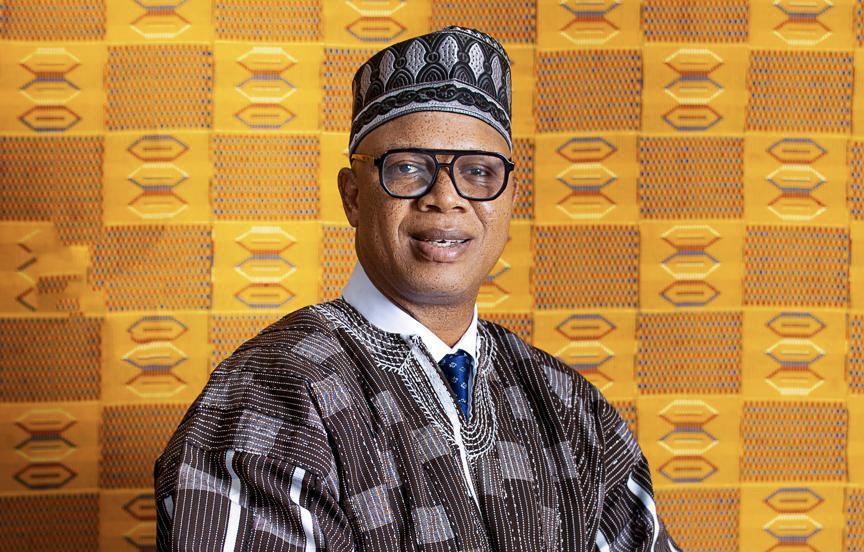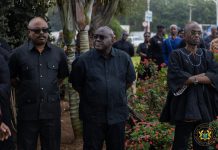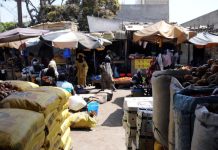Africa-Press – Ghana. Use of potable water through illegal means and methods is increasing at an alarming rate nationwide.
This has become a complex challenge for Ghana Water Ltd. (GWL) and deprives the company of the much-needed revenue, strain existing infrastructure, and disrupt fair and sustainable service delivery.
These illegal activities include but not limited to bypass of meters, direct tapping into pipelines, use of inline pumping equipment and growing theft of water meters, amongst others.
These unlawful activities have significantly increased between late 2024 and mid-2025.
In response, GWL has scaled up a nationwide revenue enhancement and enforcement campaign aimed at curbing these practices and safeguarding Ghana’s water supply.
In recent months, thousands of unauthorized connections have been reported in all our operational areas.
This contributes to loss of Revenue because water produced, transmitted, and distributed cannot be ‘accounted for’ by GWL, due to theft, leakages, or unmetered usage.
GWL maintains that the impact of illegal connections is not only financial, but it also affects efficient distribution of water, the integrity of infrastructure, and the company’s ability to invest in system upgrades and expansion to improve service delivery.
Water Theft
The numbers tell a concerning story. In the Accra Tema Metropolitan Area alone, over 2,700 illegal connections were uncovered between the fourth quarter of 2024 and the first quarter of 2025. These include unauthorised service lines, bypass of customer meters, several reconnections made by customers after lawful disconnections for nonpayment of bills.
In one widely reported case, it was detected that a property at Power Land near Ritz Junction, Agbogba Road, had three water service lines, out of which only one had a meter. The other two supplied tanker operators therefore circumventing the entire billing system. The setup included large underground reservoirs concealed behind a wall.
“This is a deliberate act that directly undermines our efforts to ensure revenue recovery and fair distribution,” says Ing. Dr. Hadisu Alhassan, Regional Production Manager for the Accra-Tema Metropolitan Area.
“More importantly, the use of such connections for commercial gain puts an unfair burden on the entire network,” he adds.
Ing. Alhassan commends the hands-on leadership of the GWL Board Chairman, Mr. Eric Biliguo Adama, who personally led the inspection that uncovered the Agbogba case.
He says, “It is refreshing to see our leadership take active steps in enforcement. It sends a clear message that illegalities will not be tolerated.”
Meter Theft
While unauthorised connections draw attention, the theft of water meters is quietly draining GWL’s operational resources. These devices, essential for exact billing and consumption monitoring and measurement, have become prime targets for theft.
Since the beginning of 2025 alone, thousands of water meters have been reported stolen nationwide. These ultrasonic meters are expensive to replace. Beyond the financial cost, meter theft creates unmetered water loss, disrupts services to households, and wastes thousands of gallons of treated water.
“Meter theft is an economic crime with real consequences for both the utility and customers,” Adam Mutawakilu, Managing Director for GWL, explains.
He further remarks, “When a meter is stolen, we lose not only equipment but also the ability to measure and manage usage efficiently.”
Mr Mutawakilu notes that GWL is working closely with the Ghana Police Service to investigate and prosecute offenders. In some cases, these thefts are linked to organised groups targeting key service zones.
“We are treating this with the seriousness it deserves,” he adds, and that “Every meter stolen is a loss that delays our progress toward full metering and smarter water management.”
Regions Rise to the Task
GWL’s regional teams have stepped up enforcement activities, reflecting a unified front across the
country. From Accra to Kumasi and Tamale, illegal users are being found, engaged, and, where necessary, prosecuted.
In Accra West, the company started legal action against over 800 users who failed to take advantage of a grace period to regularise their service.
“We gave ample time for users to come forward, and many did, but those who ignored our efforts will now face the legal consequences. This is about fairness and protecting the integrity of the network,” Ms. Solace Akomeah, PR and Communications Manager for the Accra West Region cautions.
In the Accra East Region, similar concerns persist as Nana Yaw Barima Barnie, PR and Communications Manager for the region, observes “We’re seeing increased cases of bypassed meters and unauthorised extensions.”
He adds that: “These practices lead to service interruptions and make it difficult to plan water distribution effectively.”
The Ashanti Region has also recorded significant enforcement activity as five individuals were arrested in areas including Denyame, Dakodwom, Kwadaso Estate, and Santasi Apire for unlawfully tapping into GWL pipelines.
Together, the culprits were surcharged and monies already recovered.
Mr. Padi Kwabena Narh, PR and Communications Officer for the region states that, “Illegal connections do not only reduce our revenue — they affect planned projects and deny others access to water. This campaign is ongoing, and we are determined to root out these infractions.”
In Tamale, the enforcement drive led to a successful prosecution. A 50-year-old businessman, Mr. Ibrahim Baako Alhassan, was convicted by the Circuit Court for illegally installing in-line pumps on GWL pipelines.
He was fined GHS 3,600 or 12 months in prison and was directed to sign a bond to be of good behaviour.
These are examples of GWL’s commitment to ensuring compliance through lawful means.
Law and Accountability
While enforcement stays firm, GWL has consistently promoted a balanced approach — one that allows offenders to correct their actions while applying the law where necessary.
“Before resorting to legal action, we issue notices, extend grace periods, and educate the public on proper procedures. Unfortunately, when people choose to disregard these measures, we have no option but to apply the law,” says Hon. Adam Mutawakilu, the Managing Director of the Ghana Water Ltd.
In cases like the Agbogba incident, where internal collusion is suspected, GWL is working closely with security agencies to establish the facts.
“We are equally focused on internal accountability. If any staff are found complicit, they will face administrative and legal action,” Mr Mutawakilu warns.
He further states that GWL is committed to recovering commercial losses and is currently assessing the financial implications of each detected illegal connection.
Public Partnership and Education
Beyond enforcement, GWL believes that lasting progress lies in building a culture of responsibility around water use. The company has intensified its public education campaigns to promote lawful access to water and encourage reporting of illegal activities.
“Water is a national asset. It’s not just about individual use; it’s about collective stewardship,” Mr. Adam notes, and appeals, “When someone taps water illegally, the entire system suffers. That is why we are calling on every Ghanaian to help us protect our pipelines.”
GWL is also exploring community-based partnerships in areas identified as hotspots. In such areas, the utility is considering incentive schemes to encourage whistleblowers to come forward with credible information on illegal activities.
“Public vigilance is critical. We are seeing growing interest from communities that want to protect their water supply, and that is encouraging,” he says.
Looking Ahead
Despite the scale of the challenge, GWL is optimistic about the road ahead. Strategic investments in upgrade of infrastructure, smart metering systems, digital billing, and leakage control are already in progress.
Mr Adam says: “Our objective goes beyond catching offenders; we’re building a smarter, more resilient water system, one that ensures fairness, efficiency, and long-term sustainability.”
From Accra to Tamale and Sunyani, from Kumasi to Agbogba, GWL’s message is clear: illegal connections and meter theft will not be allowed to
derail national progress. However, the company acknowledges that lasting change requires collective commitment.
“It is not a fight GWL can win alone. We need everyone, citizens, policymakers, community leaders, and the media, to come together. Every stolen litre of water affects someone else’s supply,” Mr. Adam notes.
GWL continues to encourage customers to report all suspected cases of illegal connection, and to visit any of its district offices for help in regularising service connections. As enforcement continues, so too does the company’s commitment to expanding access, improving service quality, and building trust.
Now is the time to act. Report all illegal connections. Reject the unlawful. Respect the pipe.
For More News And Analysis About Ghana Follow Africa-Press







